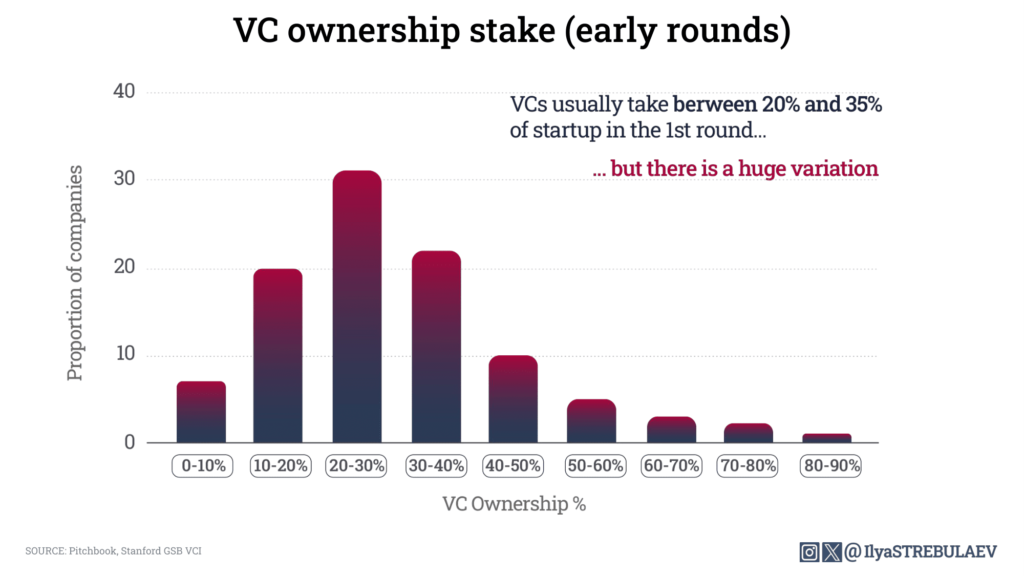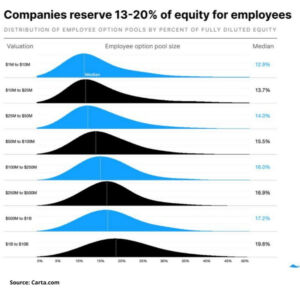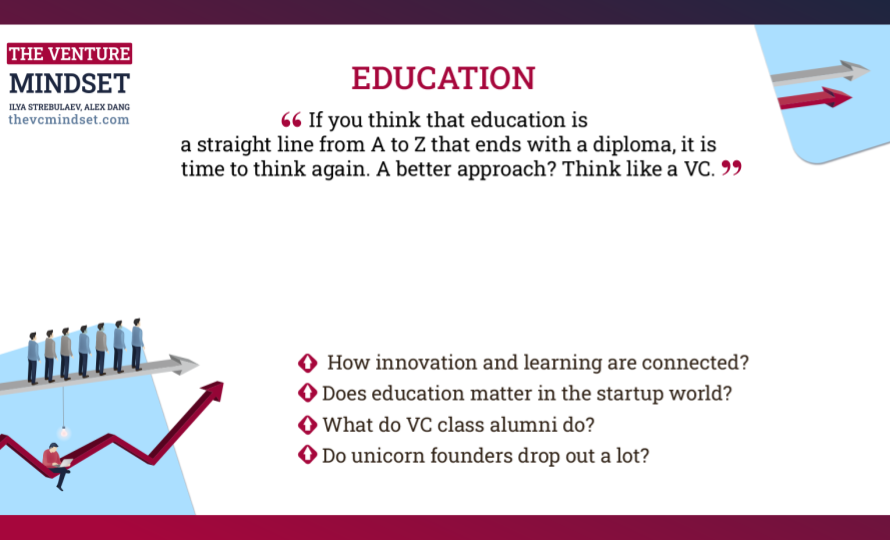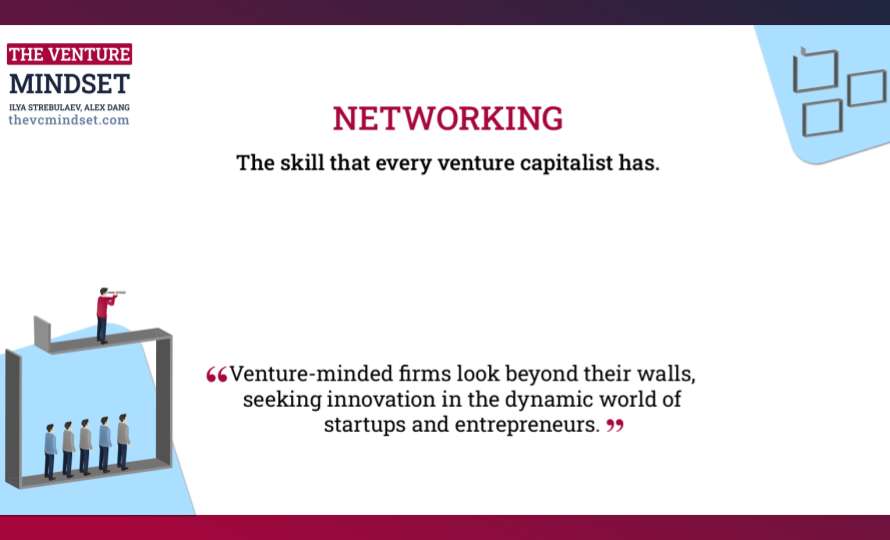You get what you pay for. This is true not only in the world of startups and new ventures. For decisions about innovation, carefully designed incentives may make the difference between success and failure. So this newsletter is about…
INCENTIVES
Greed is not good in the world of VCs. VCs want everyone working for the startups they invest in to expect to benefit from the upside. Proponents of the Venture Mindset have found a workable incentive-driven solution. As a condition of investment, they insist that everyone who matters to the project’s success becomes an owner, and they ensure that the share of the pie is meaningful. Here is why!
Receive The Venture Mindset newsletter first. Subscribe now
1. The quote

We constantly reinforce this message with our students and executives. Give people different incentives and they choose radically different actions. If you offer high fixed salaries and small incentive bonuses, your team will probably not out-innovate the competition. Tweak the incentives a bit, make it more about the longer-term value of the company with a significant share pushed out to future years, and bigger and bolder bets are more likely to happen.
Over time, yet another powerful mechanism adds to the effect: self-selection. Self-selection attracts individuals who are drawn to impactful though unpredictable work, and who are motivated by the incentives you’ve crafted.
Distributing profits equally can foster a sense of ownership and ignite entrepreneurial zeal, whereas allocating a minimal share might result in apathy. The lesson? Incentives influence outcomes.
2. From the classroom: what is a fair share?
VCs usually take between 15% and 35% of a startup’s ownership on a fully diluted basis. Why not 60% or 80%? Because they want the founding team to be incentivized to actually make the dream come true.
For an early-stage startup, it is all about executing the vision and building new products. Therefore, a highly motivated team is crucial for success. It is better to have 25% of a unicorn than 100% of nothing.

3. How much to set aside for your team
Silicon Valley became known as a unique place where, as an employee of an early-stage company, you had a chance to receive so-called stock options or become a shareholder at a very low valuation. In the 1960s, these proliferating employee stock option programs persuaded many engineers to relocate from the longer-established tech centers of Boston, New York, and New Jersey to Silicon Valley.
It is now an industry standard to set aside a significant portion of company shares as a pool for future (not yet hired) employees. This incentive model is the normal practice among VC-backed companies. VCs want everyone to demonstrate ownership and literally become owners. You can read more here.

4. A peek into the book
Silicon Valley is not only the hub for innovation and technology, but also a center where millionaires flock. However, what makes this place unique is that newly minted millionaires could be ordinary engineers, designers, outbound sales staff, or even chefs who decided to invest in a startup or two. This is what makes the place so different and creates a unique vibe. When everyone is the owner, people make decisions differently. This is what makes the Venture Mindset so powerful, as we explain in greater detail in our book (available for pre-order). Could this atmosphere be recreated in other places? Yes! See below for one example.
Consider just one day in the history of startups: November 8, 2013. On that day, as the New York Stock Exchange’s opening bell rang, Twitter’s IPO was announced and cofounders Jack Dorsey and Evan Williams added billions to their wealth. But Twitter’s IPO also minted 1,600 new millionaires, many of them ordinary engineers and product managers who had been reckless enough to join Twitter when it was only a small startup. … So, as you embark on a long and risky journey, if you want the team to work hard and bring back a large prize, design incentives that let everybody share in the gains. Everyone who shares the pain must share the gain.
VCs and founders of VC-backed companies prefer a smaller slice of a larger pie rather than the other way around. Corporations should do the same if they want to become innovation champions.
5. Which company is a millionaire factory?
Speaking of millionaires—Wall Street stock traders and Google’s and Twitter’s early employees may easily come to mind, but “McDonald’s has made more millionaires than any other economic entity ever, anywhere,” says well-known columnist George Will in the Washington Post.
McDonald’s is one of many large organizations that scaled fast because of its incentive model. It helped others become rich with its franchisee model in which the interests of all parties are closely and intentionally aligned.

Final thought
We’ve discussed incentives largely in terms of financial rewards. But money isn’t the only motivator for founders, employees, and investors. While financial incentives are a crucial way to demonstrate commitment, they represent just one of many important signals. Engineers, for instance, are often propelled by the potential impact of their work. Angel investors might prefer backing ventures with meaningful objectives. Moreover, many founders could secure higher earnings in established corporations but choose instead to pursue their inspiring personal vision, aiming to make a lasting impact on the world.
We’ve appreciated one small example of this desire for positive impact. A few investors and entrepreneurs decided to donate hundreds of copies of The Venture Mindset to nonprofit organizations that would give them to young entrepreneurs, to help them be more successful on their journeys. Such acts of kindness are a part of our lives as much as stock options.
Although monetary incentives are significant, they’re not the sole drivers of success. A multitude of factors contribute to the journey.
Stay venture-minded!
Ilya Strebulaev and Alex Dang
P.S. If you missed the previous edition of the newsletter about Patience, you can read it here.


